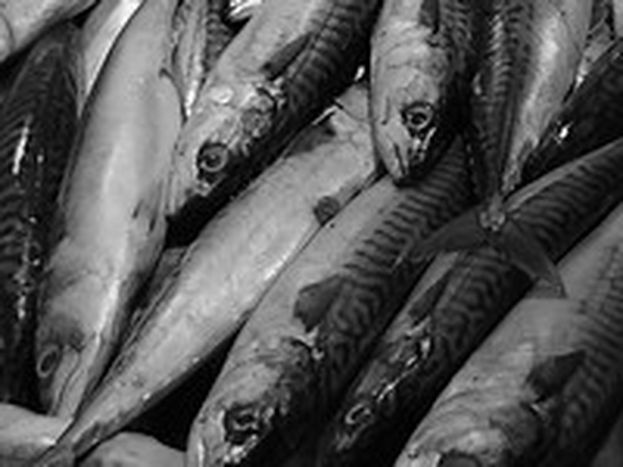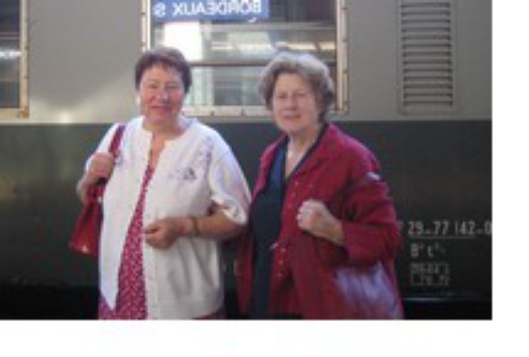
Summer's end on France's train tracks
Published on
Translation by:
 angelina robinson
angelina robinson
Embark on a surreal journey across unexplored landscapes, and discover unheard of diversity through our European lense
'It is nicest here in September. The light over the Atlantic is a lot more gentle then than during the summer. Apart from a few surfers there are only us fishermen.' The summer has left its mark on the face of the man who during this morning's dawn is driving out the little ferry from Arcachon to Cape Ferret. Everyday he covers that strech to the cape, a paradise for surfers and wealthy French holiday-makers. Last year there was much talk of this idyllic spot when two visitors died after tasting the famous Huîtres d’Arcachon (Archachon oysters). Although the link between their untimely death and the seafood has yet to be proven, the incident put a stop to the local oyster industry. Needless to say this was catastrophic for the fishermen. And not necessarily financially, as in such cases the French government provides compensation to disadvantaged French farmers and fishermen. No, the great fear of these people is rather a bad name.
The atmosphere in Arcachon cafés has perhaps since been less lively, but 'On a connu pire!' ('We have had worse times!'), the fishermen say as they have the "café-croissant-canard-clope" (coffee-croissant-newspaper-fag) with which they always start their day. Just a bit further along the road fruit vendors sell over-ripe melons. They have suffered no drama this year, while the wine producers have, after such a wet summer. Behind the market there is the sleepy train station. From here, visitors take the old train to Bordeaux, from where they move on by fast train or plane.
At this time of year even locals go to visit that city, the capital of the Aquitaine region. On sunny days, Bordeaux is like Paris in small: busy without being hectic, civil without the Parisian haughtiness. On the train the gentlemen read the Sud-Ouest, France's second most important regional newspaper. Two lady-pensioners now get in, without newspapers but in their best clothes. Their program for the day is to pop into the Galerie Lafayette, see the new pavement of the Place de la Bourse, go for a ride on the new tram and go on a stroll through the alleyways of the city centre.
The train leaves the station. The many stops along the way at countless small towns mean the train never really accelerates. New houses are being built on both sides of the tracks. One of the two elderly ladies – the one with the big white ear clips – exclaims: 'Why would anybody build their house directly next to a railway track! That's terrible!' No further invitation is needed for the ladies to start commenting on the chaos that is the French Parti Socialiste, for whom the defeat at the presidental elections seems to have been too much. There is no saviour in sight amongst the party's bigwigs, the éléphants, as the French call them. The earlcipped ladies start listing them: 'Laurent Fabius, Dominique Strauss-Kahn...'
Their loud conversation provokes a nearby passenger's entry into the conversation: 'What about François Hollande, Ségolène's ex-partner? What do you think of him?' 'Olala...', the friend of the earclips says, equipped with her perm and leather handbag: 'You know, I am for the workers, just not for idlers. There are still many idlers among those of the left. No wonder that sluggards come to us from abroad, sit in front of the TV all day and make lots of babies in all their free time.' Her friend nods and says: 'If these people don't want to adapt they should go. The money they earn here they send back home anyway. Not one cent stays here!'
At this point another traveller intervenes: 'Let me remind you that racial discrimination is a criminal offence. I ask you to kindly refrain from making such comments in public. My parents are from Lebanon and I trust you are aware that they cannot return to their home as things stand.' This comment is followed by incredulous head-shaking of the ladies and a few seconds of silence. The young, well-dressed man returns to his seat. 'I wonder why he had to get involved in our conversation,' the pensioners remark. 'Of course he felt the need to answer – did you see the colour of his skin?'
 The train approaches Bordeaux. The passengers start getting their things together. A young German woman picks up her backpack. The elderly ladies push towards the door. They step out of the train out into the warm autumn air, and the German woman behind them carefully asks them: 'Excuse me, could I take a picture of you? Although I do not share your political views, I find it important to be aware of how certain people think here. You see, I would like to be a journalist. Maybe one day I'll write an article about you two...'
The train approaches Bordeaux. The passengers start getting their things together. A young German woman picks up her backpack. The elderly ladies push towards the door. They step out of the train out into the warm autumn air, and the German woman behind them carefully asks them: 'Excuse me, could I take a picture of you? Although I do not share your political views, I find it important to be aware of how certain people think here. You see, I would like to be a journalist. Maybe one day I'll write an article about you two...'
Translated from Frankreich: Sommerende im Bummelzug


